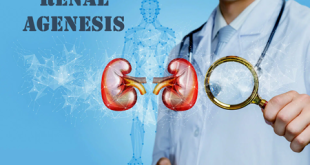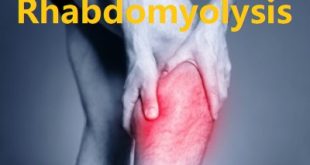Definition
Reflux laryngitis or laryngopharyngeal reflux disease also abbreviated LPR. Digestive acid and enzymes flow upward from the stomach through the esophagus to the level of the vocal folds. This is the same process that causes gastroesophageal reflux disease, or GERD, except that otolaryngologists are preoccupied with its effects at the level of the larynx, instead of the esophagus.
Reflux laryngitis
Typical symptoms include hoarseness, a sensation of a lump or excess mucus in your throat, “post-nasal drip,” excessive need to clear your throat, and a non-productive cough. Heartburn is not a necessary symptom to be diagnosed with acid reflux, and about half of all patients that have reflux to the level of the voice box (larynx) do not have heartburn. Some people report waking with irritating cough or burning in their throats.
Normal and Reflux laryngitis
Reflux laryngitis prevalence
Half of the laryngeal complaints referred to ear, nose, and throat (ENT) services are ultimately diagnosed as LPR. A meta-analysis of pH studies reveals reflux in 63% of patients with LPR, compared with 30% in controls and reflux is seven times more frequent in this group. Changes in pH suggesting reflux occur in 50% of patients with hoarseness, 64% with globus, 55% with chronic cough and 35% with dysphagia.
Risk factors of Reflux laryngitis
Patient Risk Factor Clues
Physicians obtain these clues through a complete medical history with a focus on determining whether risk factors for backflow exist. These factors include certain lifestyle habits:
- Intake of certain food and drinks
- Smoking
- Use of certain medications
- Levels of patient voice usage in daily life or profession is also an important clue.
Causes of Reflux laryngitis
Reflux is caused by weakness in the muscle at the junction of the esophagus with the stomach. Normally, this muscular valve, or sphincter, functions to keep food and stomach acid from moving upward from the stomach to the esophagus and larynx. This valve opens to allow food into the stomach and closes to keep the stomach’s contents from coming back up.
The backward movement of stomach contents (gastric contents) up into the esophagus is called gastroesophageal reflux. Moreover, any increase in abdominal pressure (such as obesity or tight clothing, which can push acid back from the stomach up the esophagus) or a person with a hiatal hernia will have an increased risk for reflux.
When it causes symptoms or esophageal inflammation it is referred to as gastroesophageal reflux disease (or GERD). When the acid backs up into the voice box (larynx), the condition is referred to as reflux laryngitis.
Stomach acid can cause irritation of the lining of the esophagus, larynx, and throat. This can lead to
- erosion of the lining of the esophagus (erosive esophagitis),
- Narrowing of the esophagus (stricture),
- Chronic hoarseness,
- Chronic throat clearing,
- Discomfort swallowing food,
- Foreign body sensation in the throat,
- Asthma or cough,
- Spasms of the vocal cords,
- Sinusitis, and
- Growths on the vocal cords (granulomas).
Rarely, reflux can lead to cancers of the esophagus or larynx.
Reflux laryngitis of symptoms
- Erosion of the lining of the esophagus (erosive esophagitis),
- Narrowing of the esophagus (stricture),
- Chronic hoarseness,
- Chronic throat clearing,
- Discomfort swallowing food,
- Foreign body sensation in the throat,
- Asthma or cough
Complications of Reflux laryngitis
In adults, damage to the vocal cords can occur if a person does not receive treatment for LPR.
In the long term, it can lead to:
- Lung and breathing disorders
- Recurrent pneumonia
- Chronic cough
- Persistent or repeated laryngitis
- Oral cavity disorders
It may also increase the risk of cancer of the larynx.
Diagnosis and test
How is the diagnosis of reflux laryngitis made?
-
Patient History
- A history of symptoms and how the voice fluctuates in relation to eating patterns is key to diagnosing reflux laryngitis.
-
Symptom Severity scales
- The laryngologist may use a questionnaire that asks questions about reflux symptoms in order to determine if the patients’ symptoms are abnormally high, indicating possible reflux.
-
pH Probe Monitoring
- In persistent or severe cases of reflux laryngitis, the patient may be asked to undergo a procedure called a pH probe monitoring. During this procedure, the patient wears a monitoring device that captures the backflow of reflux into the throat area.
- Treatment Role of Medical Treatment The first line of treatment for reflux laryngitis involves using medicines that reduce stomach acid secretion. In addition, lifestyle and behavioral modifications, termed reflux precautions, are recommended.
Treatment and medications
Treatment includes:
- Antacids neutralize stomach acid and give immediate relief. Popular choices include sodium bicarbonate (Alka Seltzer), calcium carbonate (Tums, Rolaids, Alka-Mints), and aluminum and magnesium antacids (Maalox, Mylanta, Riopan, Gavisconl), all best used 30-60 minutes after each meal and at bedtime.
- Try to have your largest meal of the day at noon.
- Give the stomach several hours to empty before you go to bed. Try not to eat after your evening meal.
- Avoid spicy or fried foods, peppermint, citrus, tomatoes, onions, and chocolate, especially if these foods increase symptoms.
- Try eating a diet that is high-protein, high-carbohydrate, and low-fat.
- Avoid lying down after you eat. It is often helpful to elevate the head of your bed with wooden blocks under the bedposts to allow gravity to keep the acid in the stomach. Pillows under the head are of negligible benefit.
- Avoid alcohol, caffeinated beverages, and tobacco.
- Weight loss, if indicated.
- Avoid drugs such as nonsteroidal anti-inflammatory drugs (aspirin, ibuprofen, etc.), theophylline (in tea, too), anticholinergics, and calcium channel blockers.
Medications available over the counter or by prescription for reflux also include the acid-blocking drugs (Pepcid, Tagamet, Axid, Zantac), now available without a prescription. Other valuable medications include Propulsid or Reglan which help empty the stomach; the proton pump inhibitors such as Prilosec and Pevacid; and Carafate to increase the resistance of the lining tissue of the stomach to acid.
If conservative therapy fails, a surgical procedure (fundoplication) is done to strengthen the muscle valve (lower esophageal sphincter).
Prevention of Reflux laryngitis
- Irritative laryngitis is best prevented by practicing healthy eating habits. The stomach responds to the ingestion of food or liquids by turning on the digestive cycle, with the secretion of hydrochloric acid and digestive enzymes. Normally, when the stomach empties, the secretory cycle slows and the stomach quiets down.
- In conditions of stress and with some medications, such as steroids, the stomach may secrete gastric acid even when it is not stimulated by food ingestion.
- Large meals with high-fat content will delay gastric emptying. Therefore, to avoid having active acid secretion during sleep, one should avoid food or liquids for two to three hours before retiring.
- Drinking fluids during the night increases the risk of reflux because they stimulate the new acid secretion and the fluids can easily come back up during sleep.
- Reflux into the esophagus during sleep is less likely to affect the larynx if the position during sleep favors the protection of the larynx.
- Elevation of shoulders and neck during sleep will prevent or significantly decrease reflux in many individuals. This is most effectively done by raising the head of the bed several inches or, alternatively, adding a foam rubber wedge-shaped mattress supplement that extends from the waist to the top of the bed.
- If precautions against reflux at night are being followed and throat irritation symptoms persist, medication to suppress gastric acid secretion may be necessary.
- The trauma of throat-clearing increases the likelihood of persistent laryngeal injury. Therefore, it is important to avoid throat clearing and to substitute swallowing to clear the bothersome throat secretions.
 Diseases Treatments Dictionary This is complete solution to read all diseases treatments Which covers Prevention, Causes, Symptoms, Medical Terms, Drugs, Prescription, Natural Remedies with cures and Treatments. Most of the common diseases were listed in names, split with categories.
Diseases Treatments Dictionary This is complete solution to read all diseases treatments Which covers Prevention, Causes, Symptoms, Medical Terms, Drugs, Prescription, Natural Remedies with cures and Treatments. Most of the common diseases were listed in names, split with categories.








which medicine can one use to treat the patient with such case
please read it in the treatment section from the post.
throat clearing has become an allergy every morning I ve to first take water before eating anything.
hi I am worried because seens I was young my vocal cord has been damaged so what can to fix it
Treatment may include voice therapy, bulk injections, surgery or a combination of treatments. In some instances, you may get better without surgical treatment. For this reason, your doctor may delay permanent surgery for at least a year from the beginning of your vocal cord paralysis.
Very helpful, had been to the doctors with my son, yet couldn’t get a convincing answer but you explained it well, Thank you